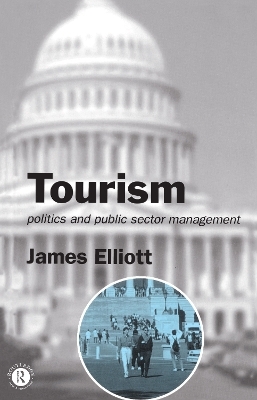
Tourism
Routledge (Verlag)
978-0-415-07158-1 (ISBN)
Tourism looks set to replace oil as the most important global industry. James Elliot explores the ways in which governments of both developed and developing countries manage this increasingly diverse and volatile industry, providing a historic and economic overview as well as the reasons why and how governments are involved in tourism management.
Using case studies from the UK, Australia and the Third World this wide ranging book covers: policy-making and planning; local governments; airlines and airports; and environmental control and sustainable development. Detailed information boxes and excerpts of official documents illustrate government management of the tourism system and provide critieria for evaluation
James Elliott is a Senior Lecturer in Public Administration at the University of Queensland, Australia.
Series editor's preface -- List of illustrations -- Preface -- Acknowledgements Acronyms and abbreviations -- 1 Introduction -- The framework of why, who, how and what Why governments are involved in tourism -- Who is involved in tourism management? -- How managers manage -- What results? practice and performance -- A comparative approach -- Five countries -- Summary -- Suggested reading -- 2 Why tourism? -- Definitions -- Historical reasons for government involvement in tourism -- Economic reasons for government involvement in tourism -- Summary -- Suggested reading -- 3 Public sector management and tourism -- Why: political environment and principles -- Who: multiplicity and diversity -- How: formal, informal and changes -- Summary -- Suggested reading -- 4 Management from the centre: formulation -- Why: responsibilities, ideology and objectives -- Who: leaders, ministries and organisations -- How: process and initiatives, formal and informal -- What results? practice and performance, United Kingdom -- Summary -- Suggested reading -- 5 Management from the centre: implementation -- Why: implementation and difficulties -- Who: federal, state and statutory organisations -- How: power, finance, functions, problems and planning -- What results? Thailand -- Summary -- Suggested reading -- 6 Management at the local level -- Why: representation, responsibilities, ideology and objectives -- Who: representatives, managers and industry -- How: leadership, community, power and principles -- What results? England, Australia, Thailand -- Summary -- Suggested reading -- 7 Public management and the private sector -- Why: responsibility, mutual importance -- Who: the industry, government business enterprises -- How: politics, freedom, dependency, regional boards -- What results? air travel, incentive travel -- Summary -- Suggested reading -- 8 Management of tourism control -- Why control? principles -- Who is involved? -- How to control: formal and informal -- What results? Vietnam, environment -- Summary -- Suggested reading -- 9 Conclusions ... and the future? -- Principles and practice -- How managers manage -- The results -- Practice -- Performance -- The future of tourism -- The future of the PSM of tourism -- Bibliography -- Index -- Authors cited.
| Verlagsort | London |
|---|---|
| Sprache | englisch |
| Maße | 138 x 216 mm |
| Gewicht | 408 g |
| Themenwelt | Sozialwissenschaften ► Politik / Verwaltung ► Staat / Verwaltung |
| Sozialwissenschaften ► Soziologie ► Spezielle Soziologien | |
| Wirtschaft ► Betriebswirtschaft / Management ► Unternehmensführung / Management | |
| ISBN-10 | 0-415-07158-5 / 0415071585 |
| ISBN-13 | 978-0-415-07158-1 / 9780415071581 |
| Zustand | Neuware |
| Haben Sie eine Frage zum Produkt? |
aus dem Bereich


